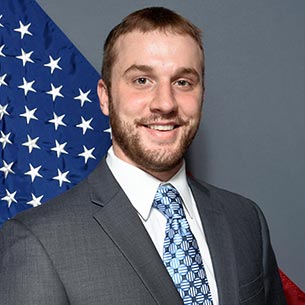
The answer, of course, is yes. The better question is, “Can I get the best result without a lawyer?” That answer depends on your ability and willingness to recognize federal, state, and contract requirements regarding whom you must repay. In Part I we touched on the variables “medical bills”, “pain and suffering”, and a personal injury attorney’s knowledge that most people don’t have, for example, negotiating with insurance companies and valuing pain and suffering. In Part II, we will further discuss the personal injury attorney’s knowledge by briefly touching on some of the federal and state laws and regulations that require payback from recovered personal injury funds:
Federal and State laws and regulations.
In the past approximately thirty years, the number of requirements set on personal injury settlements or verdicts have become more and more numerous and more and more technical. If these requirements are not met, you can be required to pay penalties and/or interest.
Medicare – If Medicare and/or a Medicare Part d, f, or g supplemental insurance paid money toward your bills, by law Medicare or the Medicare supplemental insurance must be paid back. Medicare supplements under these parts of Medicare may be issued by companies such as Aetna, Mutual of Omaha, Cigna, Manhattan Life, and others. Because Medicare is funded by taxpayers, the federal government requires that you pay back the money it spent if you recover money from the at-fault person. The good news is that Medicare doesn’t pay $1.00 for every $1.00 of your medical bills, so you may have to pay back only a part of the total medical bills. More good news is that generally Medicare will reduce the amount you owe them by the percentage you paid a lawyer to procure the settlement or verdict. The bad news is that many of the Medicare supplements do not reduce the amount you owe them. If you don’t pay Medicare and such supplements back, you may incur penalties that can be deducted from your federal income tax refunds until the government is paid back or you may face more strict enforcement.
If you require more treatment for your personal injury after you have settled your case, Medicare will not pay for such treatment unless you have a Medicare- approved set aside and all the money that was set aside has been spent. A set aside is an amount of money from your settlement that is placed in an interest-bearing account or bond or annuity, etc. The money can be used solely to pay your future medical bills that are related to your personal injury. If you did not have a Medicare-approved set aside for future bills, then Medicare will not pay for any future bills related to your injury until you have personally incurred and are personally liable for medical bills up to the total amount of your settlement (including any attorney fees and costs you may have paid).
Medicaid – even though your health insurance card says “Anthem” or “Blue Cross” or some other health insurance company name, if the insurance is obtained through Virginia’s Medicaid system, a lien is created by law (Va. Code § 8.01-66.9) requiring that Medicaid be paid back out of personal injury proceeds for the money it spent for your medical bills. The good news is that Medicaid, like Medicare, doesn’t pay $1.00 for every $1.00 of your medical bills, so you may have to pay back only a small part of the total bill. The bad news is that if you don’t pay Medicaid back, you may incur penalties that can be deducted from your state income tax refunds until the government is paid back or you may face more strict enforcement measures.
ERISA (Employee and/or Employer funded) health payments. If your employer-provided health insurance is not funded by an insurance company but by payments made by the employees and/or the employer, more likely than not your health insurance is covered under a federal statute covering employee retirement and insurance plans. The statute and the plans covered under it are abbreviatedly called ERISA. You must pay back the ERISA plan or you will be in violation of federal law. Even if you have a Blue Cross, Anthem, or other type of insurance company health insurance card, your insurance may be covered under ERISA and require pay back. Check your employee handbook or ask the resources office of your employer to be sure. If you do not pay back your employer-provided ERISA plan, you may lose your insurance, incur penalties, have the required payback amount deducted from your wages, lose your job, or face other means of enforcement.
Workers’ Compensation payments. If, while you are working, you are injured, Workers’ Compensation may pay your medical bills and lost wages. By law medical, pharmacy, or lost wages payments that are related to your personal injury and paid by Workers’ Compensation must be paid back out of any settlement you receive from the at-fault party’s insurance company.
Hospital, doctor, physical therapist, pharmacy, ambulance services, and others. Virginia Code § 8.01-66.2 gives statutory liens on personal injury proceeds to many healthcare services and providers. § 8.01-66.2 limits the amount of the lien that can be claimed and requires timely filed written liens in order to recover. Hospitals that are part of a state-funded education program are treated differently than the hospitals referred to in § 8.01-66.2. If you receive treatment at a hospital such as UVA Medical Center, VCU Medical Center or any other teaching hospital that is funded, in whole or in part, by Virginia’s education system, the Commonwealth will have a lien against a personal injury recovery for 100% of the cost of medical services provided. These 100% liens may be negotiated down if the Virginia Attorney General agrees.
Short-term and long-term disability payments. Most medical payments or lost wages payments that arise from a personal injury and are paid by a short-term or long-term disability insurance require reimbursement from proceeds of a personal injury settlement or verdict. Failure to reimburse the disability insurance company may result in your loss of disability insurance coverage or legal action against you for the full amount owed.
Personal injury attorneys these days should know to check for these statutory liens on personal injury proceeds. Personal injury lawyers check the documentation of any company paying medical bills or lost wages as the result of a personal injury to determine if the legal requirements have been met. If they have been met, then the repayment must be made in order to avoid penalties, interest, etc. If more than one company is claiming the right to be repaid, the personal injury attorney must research and determine the order in which the claims should be repaid. The discussion above is not intended to be a complete list of or explanation of statutory liens that may affect personal injury recoveries. It is solely for the purpose of giving you a brief notion of some of the statutory liens that can affect the part of your settlement that you will take home.
If you don’t want to spend the time doing this work or learning how to do it, if you don’t want to worry about whether or not you’ve done things correctly so that you won’t be penalized, fined, etc., then you may want to contact a personal injury lawyer. Personal injury lawyers are trained to search for all types of liens that could affect your recovery.
Written by Personal Injury Attorney Yvonne T. Griffin
Experienced Personal Injury Attorneys:
We concentrate our personal injury practice in vehicle accidents, motorcycle accidents, wrongful death cases, slip and falls, and animal bites.
Please contact us if you’ve been injured. We offer a free, no-obligation consultation. We have four convenient office locations: Charlottesville, Lake Monticello, Harrisonburg & Staunton.
If you’re too injured to come in, we’ll be happy to meet you at the hospital or your home. We will fight to get you the full value of your case.
























